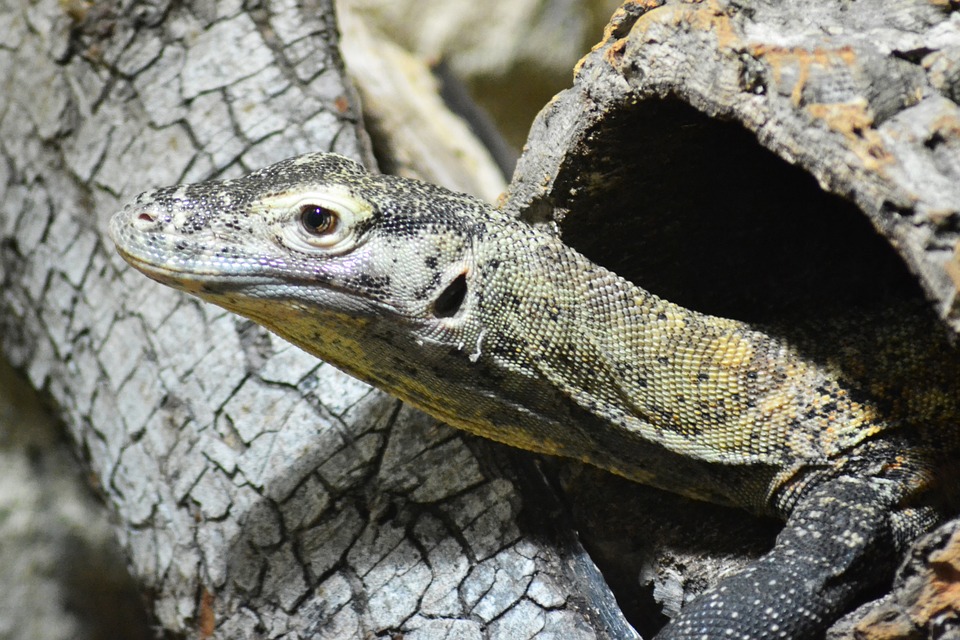Monitor lizards family Varanidae approx 76 species are identified and distributed throughout Africa, Australia, and Southeast Asia. Monitor lizards live in a wide variety of habitats, ranging from desert areas to floodplains, scrubland to forests and survived in agricultural areas. In India, presently four species of monitor lizards are present; Bengal monitor (Varanus bengalensis), Desert monitor (Varanus griseus), Yellow monitor (Varanus flavescens) and Water monitor (Varanus salvator). All the four Indian monitor lizards are listed in Schedule-I of the Indian Wildlife (Protection) Act 1972. Among them single specie i. e. Bengal monitor is reported from Uttarakhand India.
Recently the print and electronic media highlighted the Varanus genital part rapidly selling the online website with the name of plant root material Hatha Jodi (Scroll. In 2017; News national geographic.com 2017; Hindustantimes.com 2017; world animal protection. org.in. 2017) similar thing we were observed in the local market of Uttarakhand. I am working in Northern Regional Centre, Zoological Survey of India, Dehradun as a Principal Investigator of DST funded project entitled “Phylogenetic relationship and delineating the taxonomic boundaries of Saurian species in Western Himalayas: Implication in Wildlife Forensic and Molecular Systematics”. Since my ongoing work based on this species, therefore, my special interest to know about this illegal fact. Therefore, initially started our field survey in three local markets of Uttarakhand and saw that a product named ‘Hatha Jodi’ is selling illegally on veneration shop. Basically, Hatha Jodi is a rare plant root found in some part of central India which is morphologically similar to the genital part of Male Monitor lizard. During the market survey, we asked about these products from shopkeepers they told us that these are the plant products and a root of a rare plant but some of the shopkeepers told us that it's not a plant product it's an animal product. So all of these give the confusing statements about this products. They told this item used in pooja generally on Deepavali and believed to bring wealth and happiness. They also told us the procedure to use this product to gaining wealth and to store this product in a silver box retained in worship place by wrapping with a red cloth and two pairs of cloves and vermilion. The price of these depends on the size and can range between Rs 400 and Rs 4,000. Therefore, we bought these suspected samples from the shop for DNA analysis and after the genetic result, I surprised because of all samples matched with the monitor lizard. The finding of this survey and result communicated in a scientific journal.
According to our survey and some animal welfare organization these lizards are illegally poached from forests and killed cruelly their throats slit or skulls smashed before their genitals are removed for use as "Hatha Jodi". This process of removing their genital organs, animals should be alive. The whole animal is utilized by the poacher's skin is used for making leather, meat is used for eating as a cure of some disease, bones are used to cure the joint pain due to their so-called aphrodiasic property and their penis is used as Hatha Jodi.

Selling of this product is result of superstitions in our society, poverty, lack of awareness. There is need to aware the local peoples that the genital part of an animal is not giving you good luck and wealth. Now, this profession is also going to modernize these animal products are also available on internet websites. Presently young wildlife traders are no longer the tribal or the poor villagers who are not aware of the concomitant of their profession. They are familiar to used media, computer and internet websites to illegal trading of these products. Because it’s very difficult to know for an illiterate and innocent villagers or tribals that this plant root is almost similar to the genital part of monitor lizard. Lack of education is also increased this trade and most of people who buy the products on the internet are not aware that the content of the product is illegal and belong to endangered species. India is still afflicted with illiteracy and poverty so people are ready to earn quick money, without giving a second thought to its results. There is an urgent requirement to fight against the poaching of endangered and protected species, and in the prevention of cruelty to animals. These type of illegal killing and trading showed how Indian monitor lizard going to extinction due to commercialization of wildlife trades. If within a time we did not control the poaching and trades of Indian monitor lizards, it will go extinct very soon. According to the literature present on the internet, there are more than 500 Hatha Jodi samples were seized by enforcement agencies it indicates how rapidly the lizard declining. There is a need to joint the hands to conserve these innocent creatures in Uttarakhand, India. It’s not only the responsibility of some conservationist, environmentalist and activist to conserve our faunal and floral diversity but each and every person to be responsible to conserve biodiversity. Therefore, we suggest government and wildlife enforcement to take serious action against this illegal article available in Uttarakhand market.
